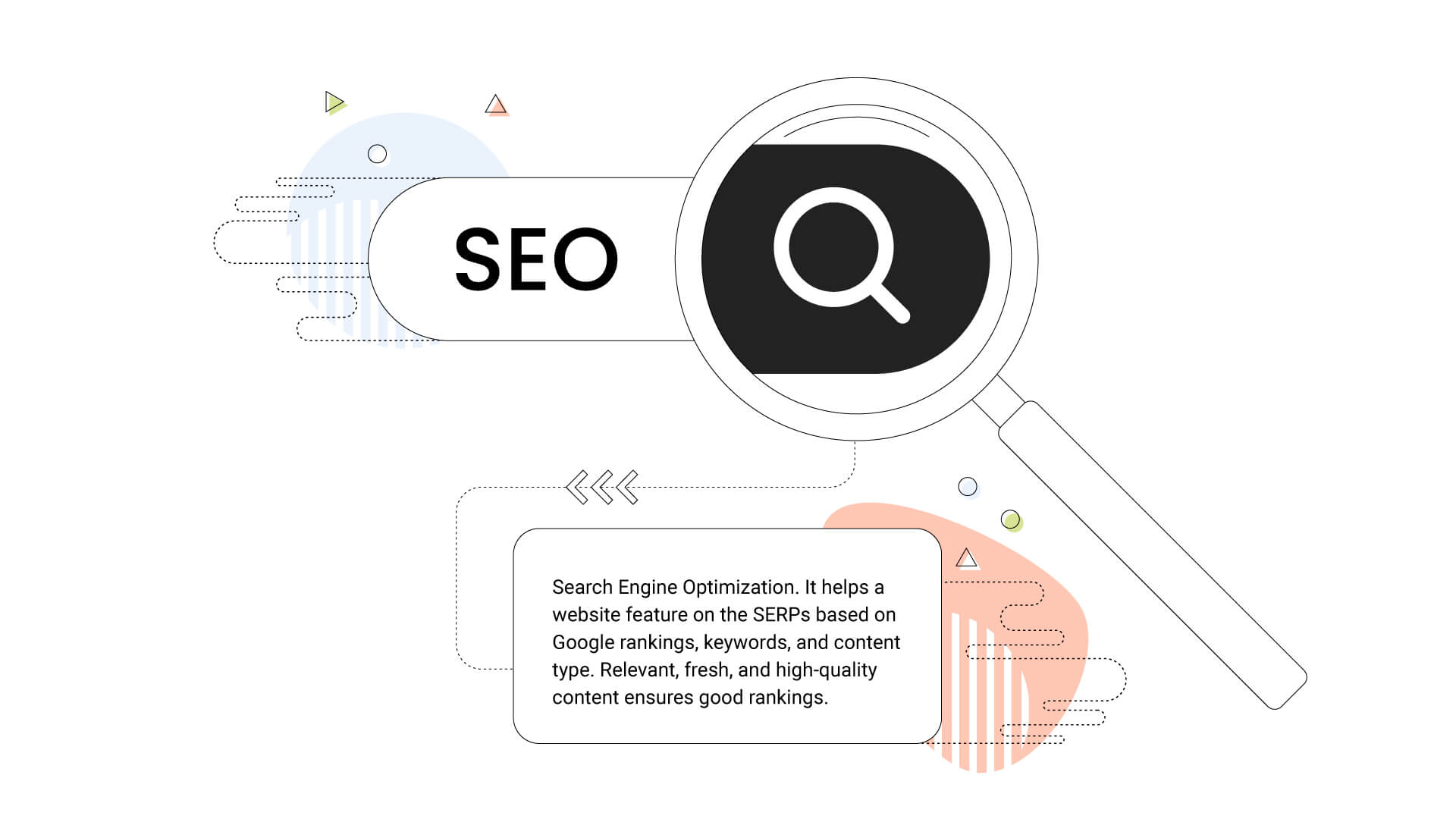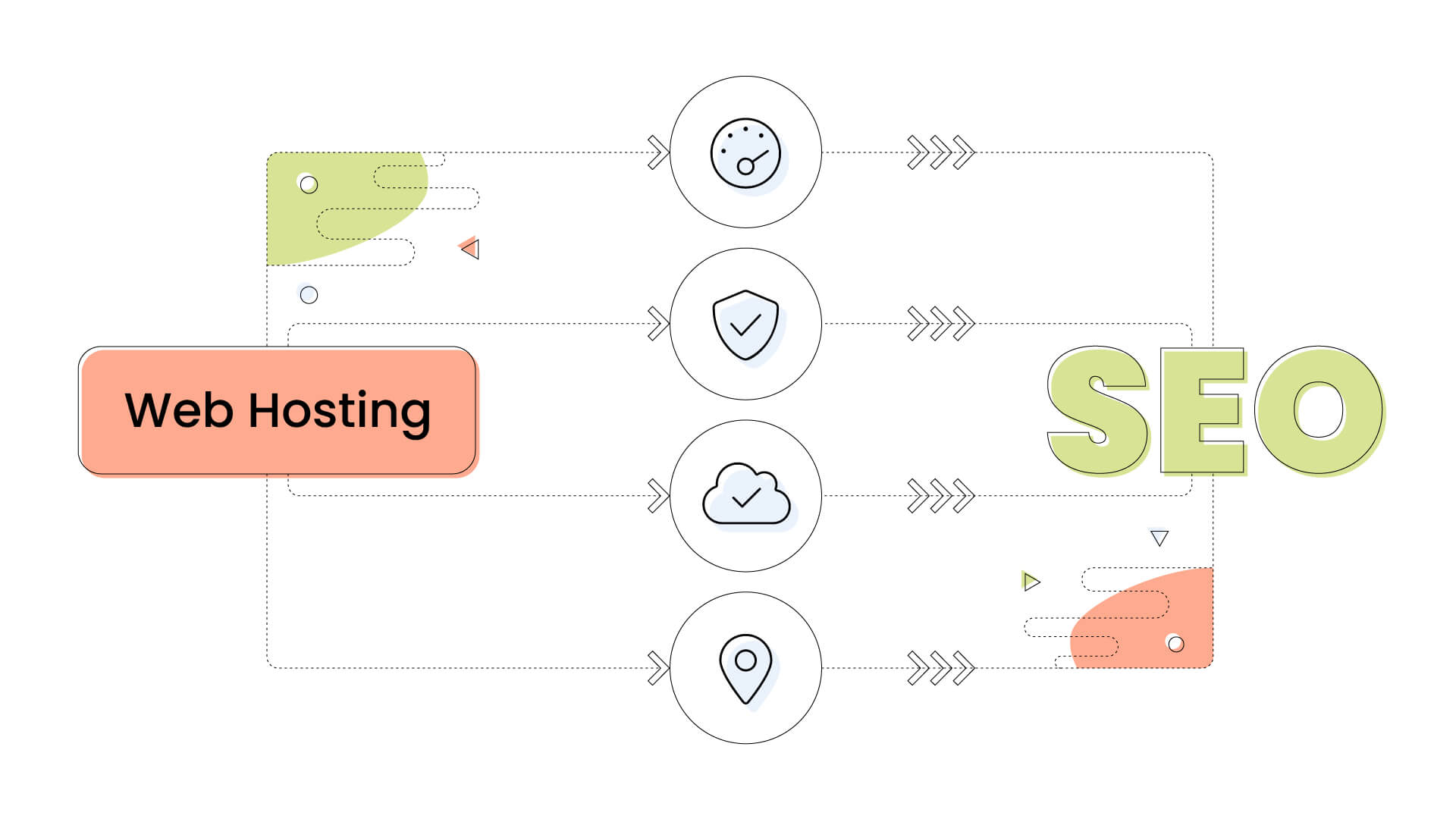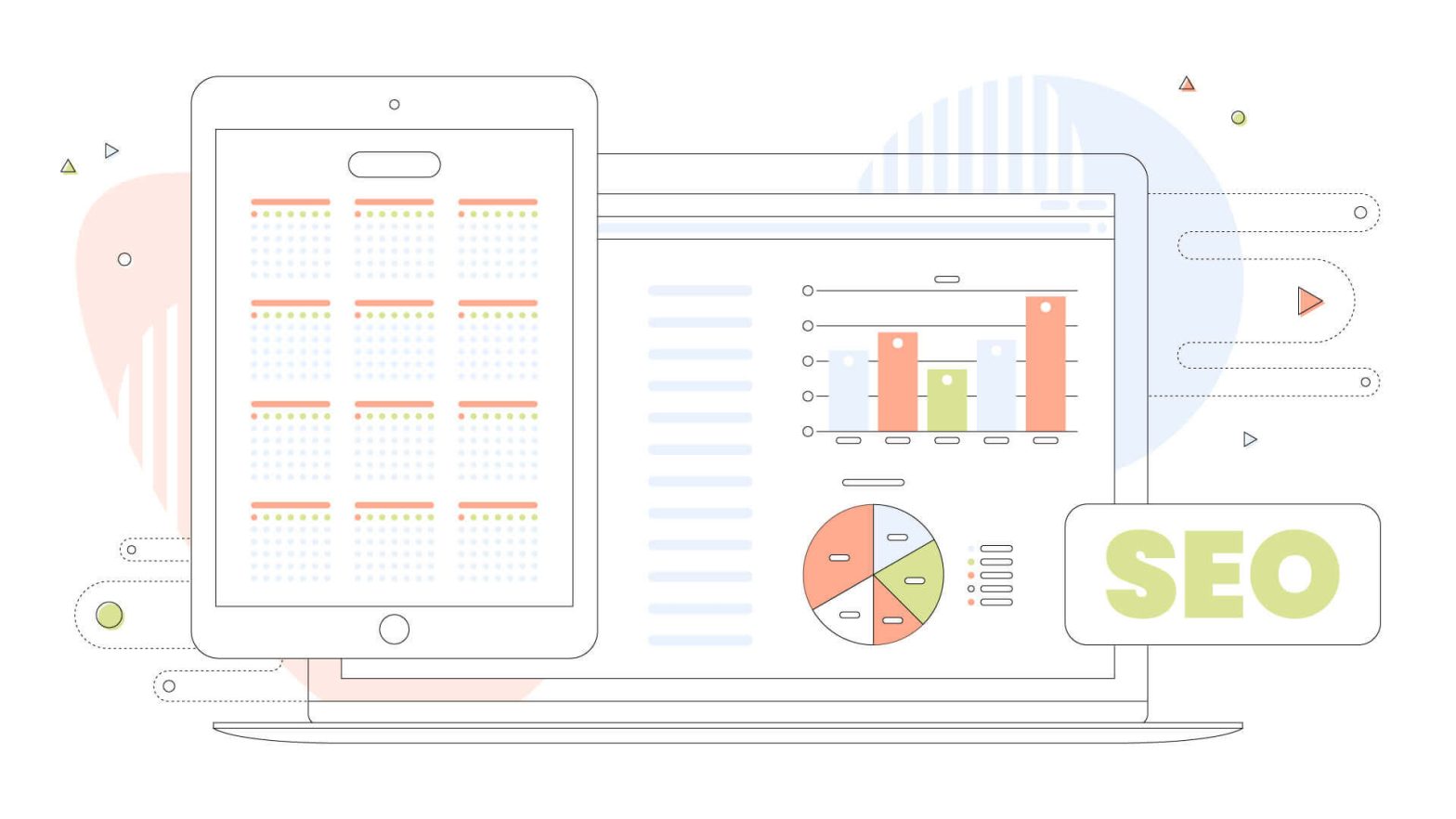What is web hosting? What is SEO? How are web hosting and SEO related?
You might think websites exist in space without taking up any noticeable physical storage. However, it’s not true; all the data, multimedia, and files you view on websites are stored in physical spaces known as servers. You cannot save a website’s data on small, temporary storage devices like external drives since the content usually keeps getting added, and there’s tons of information to store.
Websites require web hosting service providers to work correctly and deliver an engaging online experience to visitors. So let’s get down to answering the questions mentioned earlier.
What is Web Hosting?
In simple terms, a web hosting server stores data and ensures its safety and accessibility anytime and anywhere. It works like renting a space to a tenant (in this case, the tenant is a website), with add-on services such as a security guard and handyman.
A good web hosting service provider is essential for boosting and maintaining your website’s traffic as it keeps the website active, secure, and updated.
What is SEO?
Search Engine Optimization is a digital marketing technique. It helps a website feature on the SERPs based on Google rankings, keywords, and content type. Relevant, fresh, and high-quality content ensures good rankings.
One of the most widely used SEO tactics is creating backlinks via a series of activities called link building. Link building involves keyword research, reaching out to online publishers, creating content, and guest posting. And since most of the grunt work is time-consuming, companies and marketers often outsource the entire process to third-party service providers such as Link Building HQ to get the job done more efficiently. Outsourcing helps generate more focused results with better ROI.
Besides link building, several on-site SEO tactics help a website rank higher in search engines. And some of these factors may, in one way or another, be affected by the web hosting service you select.
What is the Impact of Web Hosting on SEO?
Getting your website listed at the top of the SERPs is difficult. There are several factors that a website owner or marketer must consider to implement effective SEO strategies.
Good web hosting can help website owners ensure a seamless user experience. Choosing the best web host has the potential to maximize conversions by offering high-speed services. In addition, a great web host has fewer downsides, like bounce rate and less user engagement. With limited page timeouts and server errors, visitors tend to stay on websites longer, leading to higher engagement, lead generation, and conversions.

A web host can have a profound impact on SEO, and here’s how:
Website Speed
The loading speed of a website plays a crucial role in a website’s position on search engines. Often referred to as page speed, it is the amount of time a website takes to load completely.
Google’s search algorithms consider page speed a key metric when determining a web page’s overall ranking. According to statistics, around 40% of users wait up to three seconds for a web page to load, after which the likelihood of them bouncing off to another drastically increases.
If your website is often down, unresponsive, or takes a few seconds to load, visitors will not be unable to view and engage with your content. They’ll eventually become frustrated and move to the next best option. As a result, your website’s rankings will take a hit and move down the SERPs. Slow sites often result in high bounce rates and negative reviews by customers. This is bad for your brand image in the long run.
One of the causes of slow speed and timeout errors is slow or outdated host servers. It is harder for search crawlers to crawl a slow website. Regardless of whether your web pages are indexed on search engines when they reach a limit, they automatically redirect to other websites. In this situation, your keyword-based content cannot be highly ranked on SERPs.
Search engine spiders try to reach your website multiple times a day. Furthermore, search engines can easily track the downtime of your site. For instance, if a Google crawler attempts to access your site and finds a page error, it won’t index your content or a site. Several errors caused by slow loading times can mark your website as unreliable, leading to a drop in its rankings.
It is important to understand that Google and other search engines enlist and pay more attention to responsive web pages with fast load times. Any technical glitches while visiting the site or negative user experience directly affect the rankings on SERPs. So you must choose a fast web host that can improve the site’s load time with SEO-friendly features.
Security
Security is a priority for websites. Data safety and storage have become a considerable concern with the constant rise in cyber-attacks. According to Norton, there are over 2000 cyber-attack attempts each day. Not to mention, no customer wants to do business with a website infected with malware and one that doesn’t ensure data security.
Good SEO depends on the security and safety of websites. Search engines often rank stable and secure sites higher than unprotected ones. If your website is compromised, search engines can drop your ranking on the SERPs. Plus, unprotected websites tend to get less traffic than secure ones.
Good web hosts ensure the website’s digital defenses are up-to-date. They safeguard websites from hackers and malicious bots with a robust antivirus and take swift action against incoming threats. Good web hosts also provide network monitoring, hardware security, CDN support, and DDOS prevention, adding several layers of security to keep sensitive information safe.
What does it take to make a site secure on search engines? The SSL (Secure Sockets Layer) certificate is key in identifying your website as secure on Google and other search engines. It is a tool that allows an encrypted and protected connection, such as HTTPS, for browsers and servers. HTTPS stands for Hypertext Transfer Protocol Secure and differs from unprotected HTTP.
Google redirects 95% of the web traffic to HTTPS websites to create safer spaces for web users. Hence getting an SSL certification deployed on your website helps with SEO. You must purchase an SSL certificate, a server file that digitally identifies and traces your site. A web hosting service provider can also purchase an SSL certificate to elevate your website’s security level. Also, install an updated WordPress version or automatically update it regularly to bug off security threats and vulnerabilities. Having a safe website enhances visitors’ trust in your business.
Uptime
Uptime refers to the amount of time when a website is accessible online. It is important for SEO because of two reasons. First, downtime reduces the chances of visitors landing on your website and engaging with the content. In this case, you can lose potential leads and customers. Second, search engines don’t index websites that are inaccessible or down. So your website cannot appear or rank in SERPs. However, you can count on a good web host to boost your site’s uptime.
You must purchase a reliable web hosting service to keep your website active and running most of the time. A web hosting service that offers maximum uptime ensures your content is accessible 24/7, increasing the potential traffic it can attract. This makes it indexable, searchable, clickable, and rankable.
Using services like Uptime Robot or Pingdom helps you track when your website is down. With monitoring, you are better equipped to cater to the needs of a down website and take immediate actions to make it run again.
What are the recommended actions? Using a caching plugin can protect your website from going down during high website traffic. It is a helpful plugin that can accelerate your website while reducing the burden on your server during rush hours.
Lastly, optimize your website for performance by installing a high-speed WordPress theme with optimized images. It can speed up your website and improve uptime.
Location
The host server’s location can potentially increase or decrease your site’s search engine rankings. Every time you think of a website design and layout, pay heed to the location of your business and the web host service provider.
Your site must provide visitors with a productive and seamless online experience regardless of location. How does this happen? Search engines show local results to users on the internet. Searching the same keyword from different geographical locations will appear on different search engine pages. For instance, an American audience will find different results than European visitors when searching for similar keywords. The speed of your site in a particular country will impact its search engine rankings.
What can you do to make your website accessible in locations where a potential customer base is present? Deploy a CDN (content delivery network) to ensure your web page uploads quickly across the globe. A CDN is based on a network of differently located servers worldwide. Wherever a user accesses the site from a different location than the host’s, the servers near the user’s locality send website content to them. The primary server saves the main copy of the website; contrarily, other servers have cached copies in the storage to ensure fast content delivery, irrespective of the visitor’s location.
Inaccessibility from different locations makes it difficult for people to engage with your content and harder for search engine spiders to rank your website. Without a CDN, your website might experience difficulty loading in other locations. This can result in rankings dropping for a particular region that may bring good traffic volume.
If you want your website to target a specific country or region, pick a web hosting service with servers in the same area. It will speed up the loading time and improve accessibility. You can use a Cloudflare CDN for the optimized performance of your website at an international level. It is the best way to improve the speed and ranking in search engines.

What to Look For in a Reliable SEO Web Host
Considering how web hosting impacts SEO, it is in your best interest to shortlist a service provider that understands the connection between the two. What to look for when choosing a web host? In addition to the speed, location, security, and uptime of the website, you must pay attention to the following things while selecting a web host.
Pick a Portable Content Management System
A CMS of the website is one of the primary factors that can make the user’s experience productive or boring while visiting the site. It is crucial when you are frequently involved in content creation and interact with your website daily. Choose a web host that offers an easy-to-use content management system.
You can find many considerable web hosts during your search. Install an open-source CMS to ensure your website is not locked out when upgrading it. Consider the content management system of WordPress as an example; it offers intuitive features and runs on about anything. It gives content creators and website owners the privilege to maximize the potential of the best features with ease and efficiency. Also, update and back up your site regularly to ensure you can access your site’s data and structure without being locked out.
Make a Realistic Estimate of Web Traffic to Your Site
If you look forward to ranking higher in SERPs, choose a web hosting service with high bandwidth. Bandwidth refers to how fast it receives and downloads the information for the user in a second. More bandwidth indicates the ability to handle increased web traffic, whereas low bandwidth has the potential to handle only a few visitors at a time. High bandwidth will ensure better speed, uptime, and user experience as the number of visitors increases on your site.
Web hosting service providers generally provide hosting plans based on bandwidth and storage. Make a realistic estimation of how much traffic you expect to receive on your site; choose a hosting plan accordingly. For instance, if you have a website for local customers and a target audience, you will not face any problems with limited bandwidth and storage capacity.
Prefer Scalability and Higher Functional Capabilities
A powerful SEO-friendly web host is adaptable and scalable. You might need scalable features as your business grows over time. A well-managed web hosting service provider allows you to maintain a site’s SEO-friendliness while meeting your business’s demands in different capacities.
Be sure to keep regular checks on your rapidly evolving business needs and customer base to adapt your web hosting accordingly. The availability of different hosting plans according to the business size will ease your burden when push comes to shove.
Web host service providers with higher functional capabilities allow you to practice best SEO practices efficiently. You can make a well-informed decision after proper consultation, especially if you’re unfamiliar with SEO techniques such as keyword search, link building, etc. It is time-taking and challenging to master and integrate all the latest SEO best practices on your site without any assistance.
Choose a Web Host Inclusive of SEO-Based Domain Registration
A domain name is crucial in designing and developing a website, especially for e-commerce businesses. It typically identifies the nature of the website and grants ownership rights.
An SEO-friendly domain name helps you effectively represent your business’s nature with a primary keyword. To generate more web traffic, use more common and widely used extensions such as .com, .org, and .net than less familiar ones. Popular extensions can make your website look authentic. Moreover, customers notice more common extensions in contrast to others.
Choosing a web host that offers SEO-friendly domain registration can reduce costs. Integrated web hosting plans come at a minimal cost or even free. Moreover, when you sign up for an SEO host provider, it advises you on optimizing on-site aspects for maximized traffic and revenue.
Summing It Up
Choosing a web host is a critical step that eventually determines the SEO-friendliness of your business’s digital front. Web hosting impacts your website’s page loading speed, security, uptime, and searchability. It helps you to deploy effective on-site SEO tactics, attract traffic, and generate more revenue for your business. Investing in a good web hosting service provider ensures your website ranks better on SERPs. In the long run, this will help you provide customers with a problem-free and engaging user experience and create a trustworthy brand in the digital marketplace.




